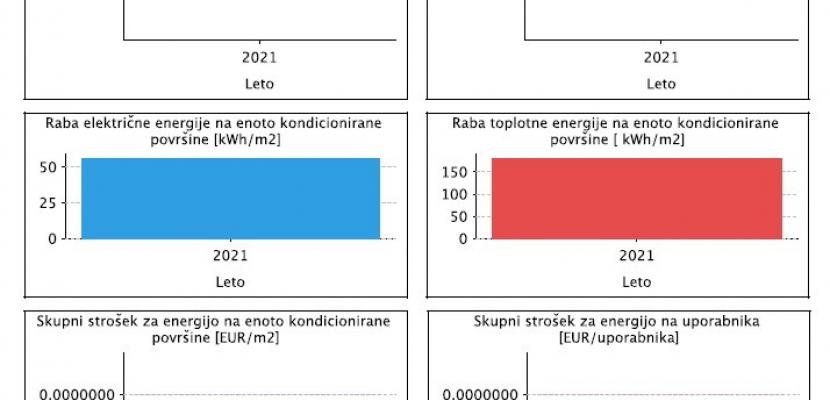
Energy bookkeeping

About this good practice
Energy data is often scattered and unconnected across different devices, records, and applications. Therefore, one of the first steps in the improvement of energy efficiency is the introduction of an energy information system that allows data collection and storage in one place.
Energy bookkeeping is a system of collecting and monitoring data on energy use in a building or individual part of a building and is kept as an computerized database based on the identification code of the building or part of the building. The computerized collection of energy accounting is kept by the ministry responsible for energy.
The collection contains data on:
•annual use of energy and energy sources in the building;
•annual costs for consumed energy and energy sources in the building;
•technical characteristics of the building (characteristics of the building envelope and technical systems, energy use profile, data on the occupancy of the building and the number of users);
•planned and implemented measures to increase energy efficiency and the use of renewable energy sources.
Stakholders:
Data managers are all managers of buildings and individual parts of buildings owned by the Republic of Slovenia or self-governing local communities and used by state bodies, self-governing local communities, public institutes, etc. and institutions whose the founder is the Republic of Slovenia or a self-governing local community, and whose usable area is more than 250 m2.
Expert opinion
Resources needed
The database owner is Ministry of Infrastructure and financing is coming from Republic of Slovenia.
The costs for establishing energy database are rather high, but could be supported with funds from EU. Also the human resources are high, specially when establishing the database.
Evidence of success
The aim of data collection is to increase energy efficiency and the use of RES in buildings used by public sector entities.
Energy bookkeeping enables:
-monitoring of energy use and other energy and environmental indicators of the building
-monitoring the cost of energy consumed in the building
-identifying deviations of actual energy consumption from expected and identifying the causes
-collecting data on the building and installed energy systems in one place.
Potential for learning or transfer
The energy database is crucial in monitoring of energy consumption in public buildings after implementing the energy efficacy and renewable energy sources measures. This is most important if the measures were financed or co-financed from state or cohesion funds, or any other funding system.
On the other hand, the database helps to plan new investments in energy efficiency, help to see where and who are the main energy consumers and helps to determinate measures needed to reduce the energy.
Only with energy bookkeeping to costs for energy can reduce from 5 to 15 %(no investment needed). And on the other hand, it is the baseline for further energy planning and management.
Good practice owner
You can contact the good practice owner below for more detailed information.

Local energy agency Spodnje Podravje

